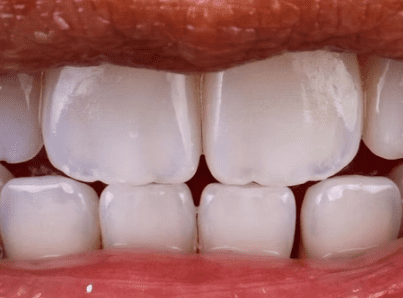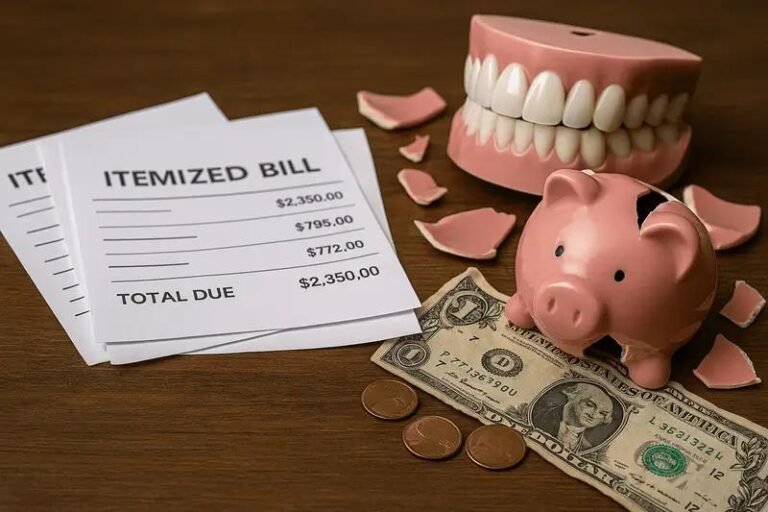Originally published on October 2, 2025. Updated on May 21, 2025.
In recent years, a concerning trend has emerged in the dental industry: an increasing number of dentists are refusing to offer composite bonding, instead pushing patients toward porcelain veneers.
This shift is often justified by outdated claims that composite bonding chips and stains easily. So composite vs porcelain veneers…

However, with advancements in dental technology, these issues have been largely mitigated. So why the push toward porcelain veneers? Unfortunately, the answer often lies in profit margins rather than patient care.
The Misleading Claims About Composite Bonding
Composite bonding has traditionally been seen as a less durable option due to concerns about chipping and staining.
However, modern composite materials are stronger, more stain-resistant, and can last for many years with proper care.

Despite this, some dentists continue to steer patients away from bonding, citing these outdated concerns, and instead promote porcelain veneers, which are more expensive and profitable for the practice.
The Profit Motive Behind Porcelain Veneers
Porcelain veneers have become a go-to solution for many dentists, not because they are always the best option for the patient, but because they offer high profit margins and almost guarantee repeat business.
Veneers require significant alteration of the natural tooth structure, leading to long-term consequences such as tooth sensitivity and the need for future replacements.
The Hidden Risks of No-Prep Veneers
Even so-called “no-prep veneers,” which are marketed as a less invasive alternative, come with significant risks.
While they are promoted as requiring little to no removal of tooth structure, the strong bonding material used can lead to irreversible changes in the teeth.
When these veneers need to be replaced, typically within 10-15 years, the underlying tooth structure is often altered, leading to a cycle of ongoing dental work that further weakens the natural teeth.
The Ethical Implications: Destroying Healthy Teeth for Profit

The push towards porcelain and no-prep veneers at the expense of preserving natural teeth raises serious ethical concerns.
Patients trust their dentists to recommend the best treatment options, but when profit is prioritized over patient care, that trust is broken.
The unnecessary destruction of healthy teeth for the sake of veneers is a trend that must be stopped.
The Call to Action: Protecting Patients from Unnecessary Procedures
It’s time for the dental industry to re-evaluate its approach to cosmetic dentistry. Patients deserve to be fully informed about all their options, including the latest advancements in composite bonding.
Dentists should prioritize patient care by offering less invasive options like composite bonding, which can preserve natural teeth and avoid the long-term risks associated with veneers.

Conclusion
The dental industry must move away from profit-driven practices that promote invasive procedures like porcelain and no-prep veneers at the expense of patient health.
Composite bonding, when done correctly, is a durable and aesthetically pleasing option that preserves natural teeth.
Patients should be empowered to make informed decisions that prioritize their long-term dental health, and dentists should advocate for treatments that truly serve the best interests of their patients.
Let’s put an end to the unnecessary destruction of healthy teeth for the sake of veneers and start focusing on what’s truly best for the patient

Disclaimer: This content is for informational purposes only and does not constitute medical or dental advice. Please consult a licensed dental professional before making any treatment decisions.
We have included two dentists in this article — Dr. Jordan Davis and Dr. Marshall Hanson — because their work reflects the kind of care we believe in. They focus on no drilling and ultra conservative smile enhancements that protect your natural teeth. We are not affiliated with them and do not speak on their behalf, but we have followed their work closely and truly respect what they are doing.
If you are considering a smile enhancement and want guidance from a team that understands the process, feel free to reach out using the form below. We are always happy to help however we can.
We cannot guarantee pricing, but in some cases, members of our community have received preferred rates or flexible options through these connections





